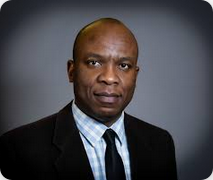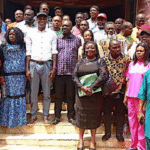When a court case gets dismissed, most people think it’s over. Case closed. Gavel down. Time to move on. But in law especially within Nigeria’s layered legal system a dismissal doesn’t always mean the end of the road.
That’s the reality following the recent judgment from the Court of Appeal sitting in Akure, which ruled that the 2022 local government elections conducted under Osun’s previous administration were null and void. For some, this sounded like finality. But as with many legal issues, the real picture is more nuanced.
What Did the Court Actually Say?
The court agreed with a prior decision that the 2022 local government elections in Osun were invalid. Simply put, those elections didn’t meet legal standards, and anyone who claimed office based on that process had no lawful claim.
In effect, the ruling affirmed that by the time the current Osun State Independent Electoral Commission (OSSIEC) conducted elections earlier in 2025, there were indeed vacancies in the local councils. The decision validated the current administration’s actions and gave legal weight to the February 2025 elections held under Governor Adeleke’s leadership.
But does this mean the matter is completely settled?
Not Quite — There’s Still a Legal Path Forward
Despite the clarity of the ruling, the All Progressives Congress (APC) still has the option of taking the case to the Supreme Court. If they choose that route, they may also apply for a Temporary Restraining Order (TRO) — a legal tool that can pause the effects of a ruling while a higher court reviews the matter.
TROs are not granted casually. The courts will weigh whether there’s a serious constitutional issue, whether real harm could occur if the ruling is implemented immediately, and whether the appeal has any reasonable chance of success.
So, while the Appeal Court decision is significant, it doesn’t fully close the chapter. It may, in fact, be a turning point rather than an endpoint.
This Isn’t Just Legal — It’s About Public Understanding
Cases like this one bring something else into focus: the gap between legal outcomes and public understanding. It’s common for people to hear “dismissal” and think it means total victory or defeat. But that’s not always how the system works.
And this is where legal professionals come in — not just in the courtroom, but in society.
When people ask sincere questions about a ruling or seek to understand how a judgment affects them or their state, the legal community has a responsibility to help clarify. Too often, these questions are brushed aside with, “I’ve already explained this,” or “It’s too complex.” But that kind of response only deepens public confusion.
Legal knowledge should never feel like a private club. Those who understand the system must be willing to explain it.
Let the Law Work — But Let the People Understand It Too
The Osun case reminds us that legal outcomes are shaped by both process and perception. Courts have spoken — and their words carry authority. But that authority is strengthened when the public also understands what those words mean.
People don’t need to be lawyers to engage with legal issues. What they need is access — to information, to clarity, to explanation. Democracy becomes stronger when citizens are informed, not sidelined.
And the burden of explanation shouldn’t fall solely on the courts or the press. It must also be carried by those trained in the law.
So, Where Does This Leave Osun?
For now, the current local government structure in Osun has been affirmed. But the APC may still challenge the ruling at the Supreme Court. If they do, the process continues. And depending on how events unfold, we could see new legal battles — or a final resolution.
What’s most important is that Nigerians continue to pay attention, not just to who wins or loses, but to how the system functions — and how justice is understood by the people it’s meant to serve.
Abidemi Adebamiwa is a legal researcher, public policy analyst, and Managing Editor of Newspot Nigeria. He currently serves as Technical Editor at the MSL Transactional Law Magazine, Northwestern University Pritzker School of Law.



